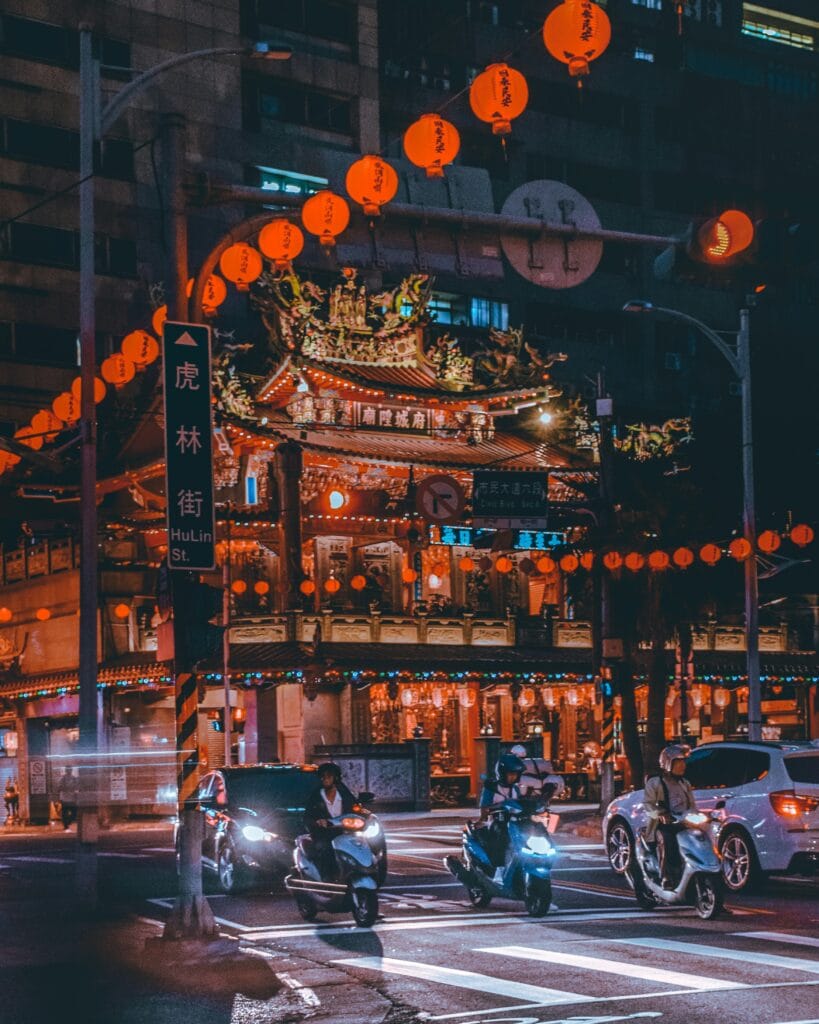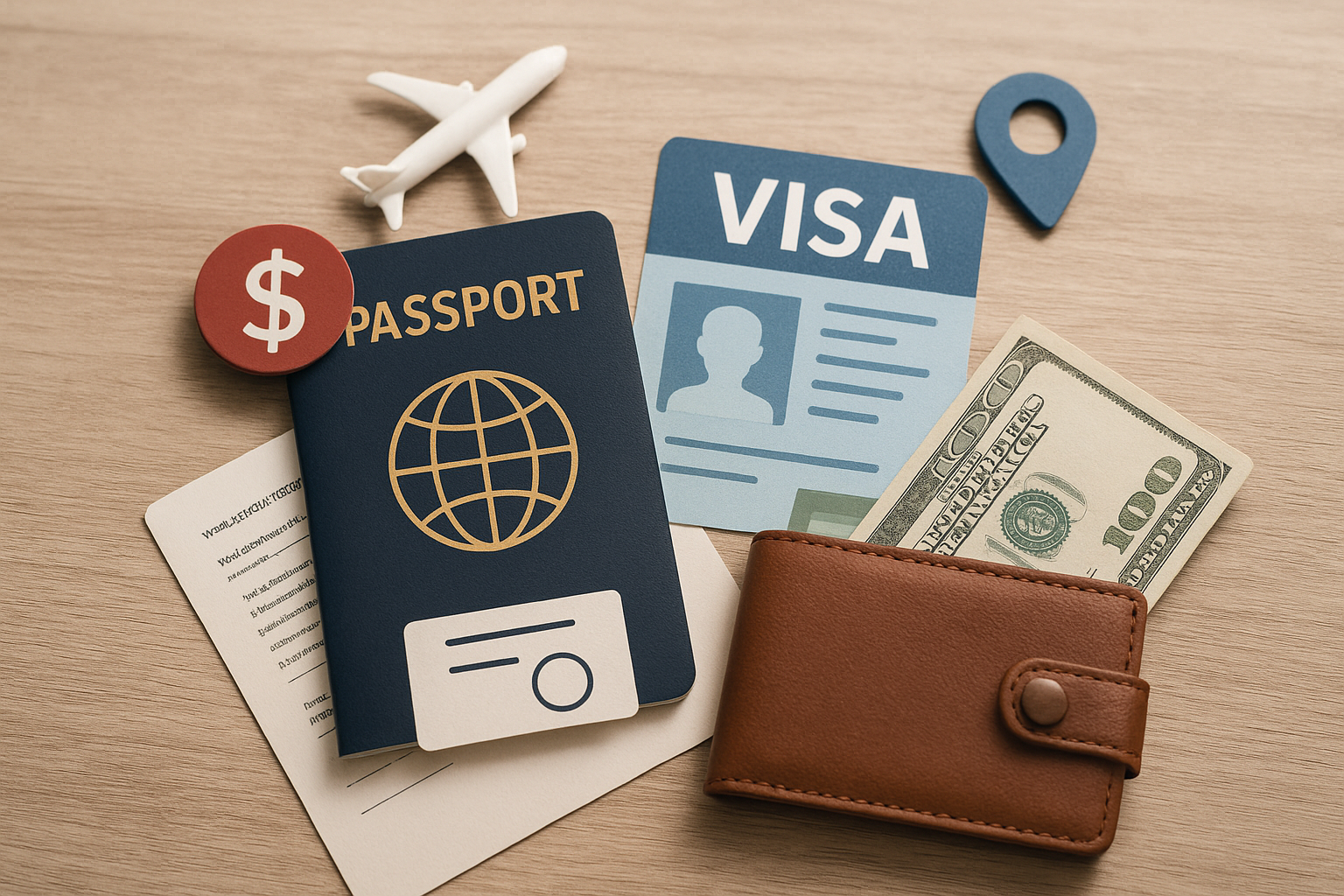Taiwan’s Digital Nomad Visa: Everything you Need to Know
As remote work becomes the new norm, Taiwan is making waves by launching its first-ever Digital Nomad Visa. This exciting opportunity allows remote professionals to live and work in one of Asia’s most dynamic destinations, solidifying Taiwan’s position as a top hub for digital nomads. With cutting-edge infrastructure, breathtaking natural landscapes, and a rich cultural heritage, Taiwan is set to attract professionals from around the world.
Whether you’re drawn to its efficient public transport, world-famous street food, or thriving startup scene, this new visa opens the door to experiencing it all while growing your career. Up next, we’ll break down everything you need to know—from application steps and costs to lifestyle insights and local etiquette.
What is Taiwan’s Digital Nomad Visa?
Officially referred to as the “Gold Card Visa,” Taiwan’s Digital Nomad Visa is designed to attract international professionals across various industries. The visa allows remote workers, freelancers, and entrepreneurs to live and work in Taiwan for up to three years. It’s a significant move aimed at boosting the island’s economy while fostering innovation and global connections.
Key Benefits:
- Length of Stay: Valid for one to three years, with the option to renew.
- Multiple Entries: You can freely enter and exit Taiwan during the visa’s validity.
- Tax Incentives: Enjoy competitive tax rates if you meet specific criteria.
- Work Flexibility: The visa is open to remote workers, freelancers, and entrepreneurs across diverse sectors.
Who is Eligible?
The visa is available to individuals with expertise in fields like technology, arts, sports, and academia. However, applicants must meet certain income or qualification criteria. More details are available on the Taiwan Employment Gold Card website.
How to Apply for the Digital Nomad Visa in Taiwan
Step-by-Step Application Process:
- Prepare Your Documents:
- A valid passport
- Proof of income or employment
- Relevant qualifications (degrees, certifications, etc.)
- Online Application: Visit the official Gold Card portal to start your application.
- Pay the Application Fee: Fees vary depending on your nationality but typically range from $100 to $300 USD.
- Wait for Approval: Processing times average 30-60 days. Upon approval, you’ll receive your visa electronically.
- Pick Up Your Gold Card: Collect your card upon arrival in Taiwan or at a designated location.

Cost of Living in Taiwan
Taiwan offers an affordable yet high-quality lifestyle compared to other major hubs like Singapore or Tokyo. Here’s a breakdown of typical expenses:
Accommodation:
- Shared Apartments: $200-$400/month
- Private Studio: $500-$800/month
- Utilities: $50-$100/month
Food:
- Street Food: $2-$5/meal
- Mid-Range Restaurants: $10-$20/meal
- Monthly Groceries: $200-$300
Transportation:
- MRT (Subway): $0.50-$2/trip
- Scooter Rental: $50-$100/month
- High-Speed Rail: $30-$50/trip (city-to-city)
Extras:
- Co-working Spaces: $100-$300/month
- Gym Membership: $30-$50/month
- Internet: $20-$40/month
Must-Visit Attractions in Taiwan
Taiwan is a treasure trove of cultural landmarks, natural wonders, and vibrant urban experiences. Here are some highlights to immerse yourself in:
Taipei 101
As one of the world’s tallest skyscrapers, Taipei 101 is more than just a marvel of engineering—it’s a symbol of Taiwan’s modernity. The observatory offers breathtaking, panoramic views of Taipei City, especially during sunset or on clear nights. If you’re adventurous, try the high-speed elevator, which is an experience in itself. Don’t forget to visit the nearby shopping and dining districts for a complete day out.
Taroko Gorge
Nestled in the east of Taiwan, Taroko Gorge is a nature lover’s paradise. Its towering marble cliffs, emerald rivers, and lush forests create an awe-inspiring landscape. Whether you prefer leisurely strolls or challenging hikes, the park has something for everyone. The Shakadang Trail is a favorite for its crystal-clear streams, while the Eternal Spring Shrine offers a peaceful, photogenic stop.
Jiufen Old Street
This charming mountain town feels like stepping into a Studio Ghibli movie. With its red lantern-lit alleys, unique boutiques, and traditional teahouses, Jiufen Old Street is a sensory delight. Don’t miss out on trying taro balls, a local dessert, while enjoying views of the surrounding mountains and ocean. It’s especially magical at night when the lanterns create an enchanting atmosphere.
Sun Moon Lake
A haven of tranquility, Sun Moon Lake is Taiwan’s largest body of water and a must-visit for outdoor enthusiasts. Rent a bike to cycle around the lake’s scenic paths, or take a boat ride to explore its serene beauty. Nearby attractions like the Wenwu Temple add a cultural dimension to your visit. Early mornings and evenings are perfect for catching the lake’s ethereal beauty.
Night Markets
Night markets are at the heart of Taiwan’s culture and culinary scene. Each market has its own character, but staples like bubble tea, stinky tofu, and grilled seafood are ubiquitous. Shilin Night Market in Taipei is famous for its variety, while Raohe Night Market offers a more traditional vibe. The vibrant atmosphere, tantalizing smells, and bustling crowds make night markets a quintessential Taiwanese experience.
Do’s and Don’ts in Taiwan
Understanding local customs can enrich your experience and help you navigate Taiwan’s culture respectfully.
Do’s:
- Learn Basic Mandarin: While English is spoken in urban areas, knowing phrases like “xiè xiè” (thank you) goes a long way.
- Use Public Transport: It’s clean, efficient, and budget-friendly.
- Respect the Environment: Recycling is taken seriously in Taiwan.
- Try Local Cuisine: From beef noodle soup to xiao long bao, Taiwan’s food is a culinary adventure.
Don’ts:
- Avoid Public Displays of Affection: Taiwanese culture leans towards modesty.
- Don’t Tip: Tipping isn’t customary and may even confuse locals.
- Don’t Ignore Personal Space: Taiwan’s crowded areas require awareness of boundaries.
Embracing Taiwan’s Culture and Language
Cultural Highlights:
Taiwanese culture is a blend of Chinese traditions, indigenous heritage, and Japanese influences. Festivals like the Lantern Festival and Dragon Boat Festival offer a glimpse into these rich traditions.
Language Tips:
Mandarin Chinese is the official language, but many younger Taiwanese speak some English. Apps like Pleco or Google Translate can be helpful for real-time translation.
Local Etiquette:
- Greet people with a slight nod or bow.
- Remove shoes before entering someone’s home.
- Offer and receive items with both hands as a sign of respect.
Is Taiwan Right for You?
Taiwan’s Digital Nomad Visa opens doors to an enriching work-life balance in a country known for its safety, hospitality, and innovation. Whether you’re a tech professional, a creative freelancer, or an entrepreneur, Taiwan offers a supportive environment to thrive.
As you plan your move, explore resources like the official visa website and communities like Taiwan Digital Nomads on social media to connect with like-minded individuals.
Related Post: Digital Nomad Visa Programs













